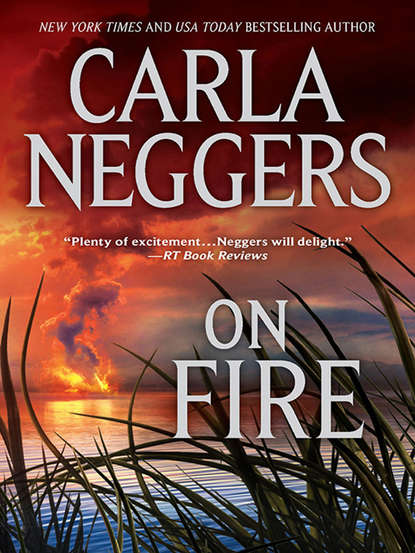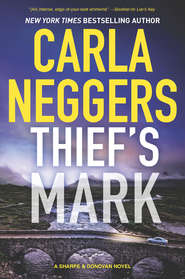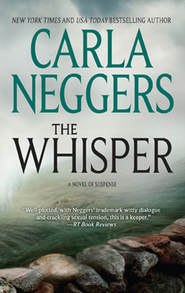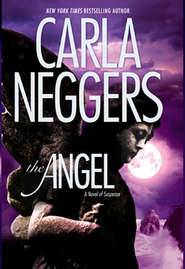По всем вопросам обращайтесь на: info@litportal.ru
(©) 2003-2025.
✖
On Fire
Автор
Год написания книги
2018
Настройки чтения
Размер шрифта
Высота строк
Поля
Her legs almost gave out on her, as if she were climbing Mount Katahdin instead of a few porch steps. She collapsed onto an old Adirondack chair. The wind had shifted. There wasn’t even a hint of fog in the clear September air. It was cool up on the porch, out of the sun, which only made her shivering worse.
Emile’s door was shut tight. She doubted he’d have heard the news yet. She felt acid crawl up her throat at the unbidden images of bloated flesh, pesky gulls swooping down on the hapless body.
She sprang up out of the chair. “I should have skipped that stupid picnic.”
Then Straker could have found the body on his own. Or the sea could have had it back. She struggled with the same disconcerting feeling of helplessness she’d experienced at her first whale and dolphin strandings when she was a teenager volunteering on a rescue and recovery team. Their mission was to end the suffering of animals beyond help, get the healthy ones out to sea before they died on the beaches and treat the injured, taking them back to the center for rehabilitation and, whenever possible, their eventual return to the wild. Now it was her team—but she would never get used to the death and suffering.
The man on the beach had been long past suffering.
She decided to leave Emile a note. Sympathy, commiseration, allaying her fears, venting—such niceties wouldn’t occur to him. He would expect her to continue on to Camden and Boston. He wasn’t heartless; he was simply oblivious. The urge to share her woes with him arose more from the shock of the moment than any rational reasoning on her part. She’d arrived too late to do the man on the rocks any good, and now her experience felt unfinished, as if she should do more, know more.
Would Straker dismiss the dead man and resume his isolated island life without a second thought?
She found Emile’s spare key on the windowsill and let herself in. Even less rational than wanting to cry on Emile’s shoulder was trying to get into John Straker’s mind. Time to get her things and be on her way.
But when she set off, she ended up on the side street above the village harbor, where Straker’s parents lived in a serviceable house that was at once home, shop and project. It had been in a constant state of flux for as long as Riley could remember, with gardens going in and coming out and discarded house innards piling up in the yard as various rooms underwent renovation. The glassed-in front porch served as a catchall for yard sale findings Straker’s mother planned to fix up. She was clever at fixing things up, even if she tended to underestimate the time she would require. Summer people and locals alike employed her talents in furniture restoration and upholstery—they just knew not to expect quick results.
John Straker, Sr., was a lobsterman, his pots piled up outside the garage. It was a hard, good life, and if he regretted not having his son around to share it, he would never let an outsider like Riley St. Joe know about it.
She went around back, and Linda Straker called her into her cluttered kitchen, where she was elbow deep in one of her craft projects. She had an unlit cigarette tucked between her lips. She was a strong, stubborn, imaginative woman with hair that frequently changed color—today it was brunette—and a few extra pounds on her hips.
Her son had inherited her gray eyes. They settled on Riley. “You’re here about that dead body?”
“You heard.”
“Not much happens around here I don’t hear about. Where’s Emile?”
“I don’t know. On the nature preserve, I expect. I’m on my way back to Boston.” Riley dropped into a chair; she felt awkward, as if she were twelve again and Mrs. Straker would offer her a glass of Kool-Aid. “Actually, I’m not sure why I stopped by.”
“Because you’re afraid that body’s got something to do with my son and it’s going to come back and bite you in the behind.” She took a breath, made a pretend drag on her cigarette. Her eyes were serious, experienced. “It could, you know.”
“Why do you say that?”
“Because that’s the way it’s been with John since he saw the light of day thirty-four years ago. He’s an FBI agent now, Riley. He’s seen and done things since you nailed him with that rock when you were twelve. If I were you, I wouldn’t mess with him.”
Riley fiddled with a length of twine. “Too late.”
“You couldn’t have just pretended you didn’t see that body and gone on your way?” She gave a long sigh. “No, I suppose not, and if you had, John would have known it and come after you. No way out of this one, Riley. If you’re going to go toe-to-toe with him again, don’t rely on luck. That’s my advice. Take good aim, and if you do hit him, run like hell.”
In spite of her tension, Riley managed a laugh. “I have no intention of seeing your son again, never mind throwing rocks or anything else at him.”
The back door banged open, and Straker glared in at the two women. If Riley had still had any doubts he wasn’t eighteen anymore, they would have been dispelled. He radiated hard-edged energy, the kind of raw intensity she’d expect from a man who’d gotten himself shot twice.
“Speak of the devil,” Linda Straker said, unperturbed.
He kicked the door shut behind him. “St. Joe—damn it, what the hell are you doing here?”
Riley groaned. “I’m talking to your mother. I’m allowed. Aren’t you supposed to be holed up on the island?”
“He comes into town every now and then for supplies,” his mother answered for him.
He turned to her. “I thought you quit smoking.”
“I did. It’s not lit.”
“Then what are these for?” He picked up a package of matches that Riley hadn’t even noticed and tucked them in his jeans pocket. “You’ll be puffing away the minute I leave.”
She dropped her cigarette into a brass ashtray shaped like a lobster. “There. Nazi. I deserve a cigarette after hearing you found a dead body.”
“I didn’t. Riley did.”
“You could have taught school like your sister,” his mother said, “or taken up lobstering like your father. You could have opened up a law practice in town. But no, you have to join the FBI and get shot, bring dead bodies to town.”
“That body has nothing to do with me.”
“Then it has something to do with Emile Labreque. Either way, you’ll get involved. You’ve always had a soft spot for Emile. He believed in you when no one else did. Even I had my doubts.”
“Mrs. Straker,” Riley said carefully, “just because the body was found on Labreque Island doesn’t mean Emile—”
Straker didn’t let her finish. He fingered a paper doily. “What’re you making?”
His mother bit off a sigh. “Your Christmas present. Keep your mitts off.”
“I stopped by to reassure you. I knew you’d hear what happened.” He shot Riley another nasty look, as if she’d been the one who squealed. “It’s nothing to worry about, probably just some poor bastard who fell off his boat.”
“No one’s been reported missing. You’d think—”
“Don’t think, Ma. Just let the police handle this one. And I’m fine, in case you were wondering.”
She glowered at him. “The hell you’re fine. You’ve been sitting out on that island for six months. Half the town thinks you’re a raving lunatic.”
His jaw set hard. “I’ve said my piece.”
He about-faced and walked out. Just like that. Linda Straker snatched up a huge pair of scissors. “That terrorist didn’t do half the job on him I could do right now.”
Riley judiciously said nothing.
“I’ll tell you the truth, Riley. We all breathed a sigh of relief when he went out to Labreque Island to recuperate instead of up into the spare bedroom. I’d just as soon tend a wounded tiger as him.”
Riley knew the minute she agreed with her, Linda Straker would turn on her. “Will you excuse me, Mrs. Straker?”
“Go on,” she said. “Go after him. You’re looking good, Riley—I meant to say that right off. I wasn’t sure what to expect after your grandfather’s ship went down.”
“That wasn’t his fault, you know.”
“You never know with ships,” she said, and Riley, suddenly feeling the walls closing in around her, shot outside.
She caught up with Straker in the driveway. “Where are you going?”











